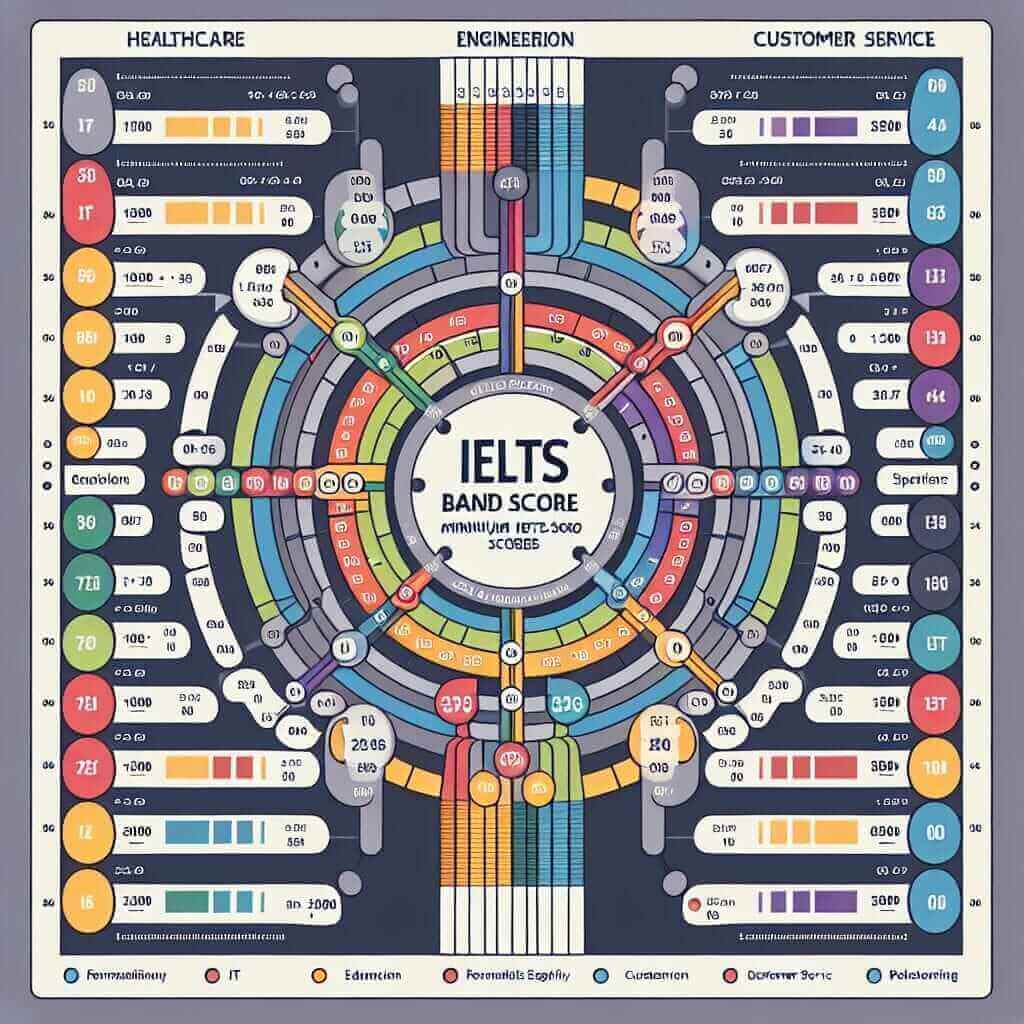In the global job market, proficiency in English is often a mandatory requirement. Among the numerous certifications available, the International English Language Testing System (IELTS) stands out as a prestigious and widely acknowledged benchmark. But what is the IELTS band requirement for job applications? This article aims to comprehensively explore this question, providing ample insights, examples, and practical advice for IELTS aspirants.
Understanding IELTS Band Requirements
The IELTS exam is scored on a 9-band scale, showing the test taker’s ability to use English. Different organizations and job roles have varying band score requirements. Generally, the required IELTS band score for job applications ranges from 5.5 to 8.0 depending on the job and the country.
- 5.5 to 6.0: Suitable for roles that require basic English proficiency.
- 6.5 to 7.0: Required for mid-level positions needing strong command over the language.
- 7.5 to 8.0: Essential for high-level positions in professional, academic, and technical fields.
Band Score Examples
The table below illustrates typical band score requirements for different job sectors:
| Sector | Minimum IELTS Band Score |
|---|---|
| Healthcare | 7.0 – 7.5 |
| Engineering | 6.5 – 7.0 |
| Education | 7.0 – 8.0 |
| Information Technology | 6.0 – 7.0 |
| Customer Service | 5.5 – 6.5 |

Examples of IELTS Band Requirement in Job Descriptions
-
NHS (National Health Service), UK:
- Minimum Requirement: Overall 7.0 with no less than 7.0 in Speaking and Listening.
-
Amazon, Customer Service Role:
- Minimum Requirement: Overall 6.5 with no less than 6.0 in any section.
-
Google, Software Engineer:
- Minimum Requirement: Overall 6.5 with no less than 6.0 in Writing and Speaking.
-
University Lecturer, Canada:
- Minimum Requirement: Overall 7.5 with no less than 7.0 in all sections.
-
Airline Pilot, Australia:
- Minimum Requirement: Overall 7.0 with no less than 6.5 in each section.
Applying IELTS Band Scores to Job Applications
Understanding the specific band requirements for your target job can help you focus your preparation efficiently:
Healthcare Sector
For example, to work as a doctor in the UK, the General Medical Council mandates an IELTS score of at least 7.5 overall with 7.0 in each component. Moreover, the Listening and Speaking components are crucial as they evaluate your communication skills with patients and colleagues.
Practice Example:
- Question Type: Listening Section (Lecture)
- Tip: Practice medical-related listening tracks and note-taking for key details.
Engineering Sector
Software and civil engineers aiming for roles in multinational firms might need an overall score of around 6.5, ensuring they can effectively understand and convey technical details.
Practice Example:
- Question Type: Writing Task 1 (Process Diagram)
- Tip: Focus on coherently describing processes and technical diagrams, using appropriate technical vocabulary.
Common Mistakes and How to Avoid Them
Misunderstanding Band Requirements
- Issue: Candidates often assume the same band score requirement for all job roles.
- Solution: Research and confirm specific requirements for each job application.
Overlooking Individual Section Scores
- Issue: Focusing only on the overall band score while ignoring minimum section scores.
- Solution: Balance your preparation across all four components: Listening, Reading, Writing, and Speaking.
Practical Tips for Scoring High in IELTS
Practice Regularly
- Engage in daily practice involving all four sections.
- Use IELTS practice books and online resources to simulate the test environment.
Focus on Weak Areas
- Identify and work on weaker sections by taking regular mock tests.
- Seek feedback from teachers or peers to refine your skills.
Participate in Speaking Clubs
- Join English speaking clubs or discussion groups to enhance speaking and listening skills.
- Create real-world scenarios related to job fields you are aiming for to practice relevant vocabulary.
Conclusion
Achieving the required IELTS band score is crucial for job applications in various sectors. By understanding specific band requirements, avoiding common pitfalls, and engaging in effective practice, you can enhance your chances of securing your desired job. Remember, sustained effort and strategic preparation will lead you to success in the IELTS exam and, ultimately, your career goals.
For further guidance, feel free to leave a comment or explore other sections of our website for additional resources. Keep practicing and stay motivated!